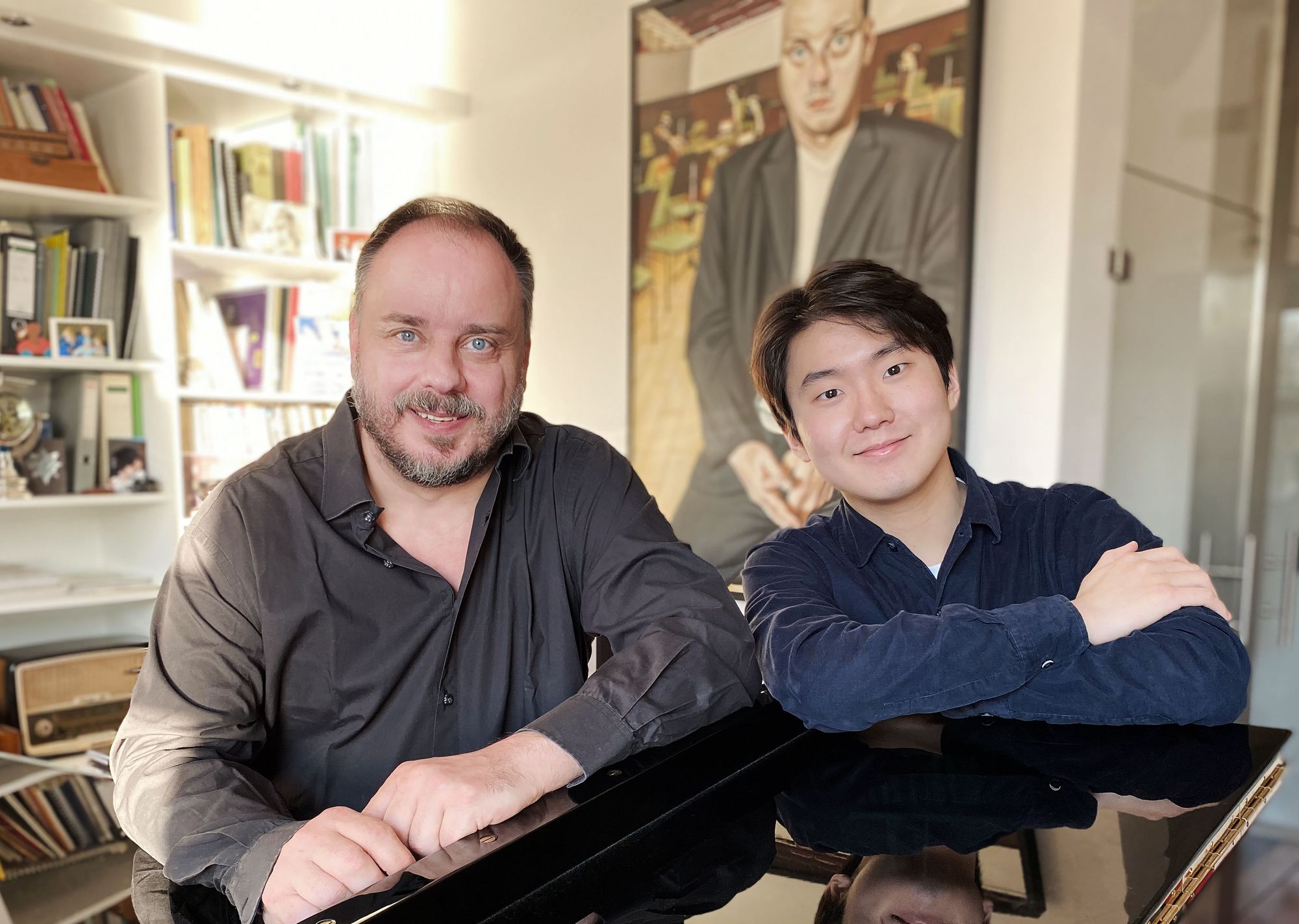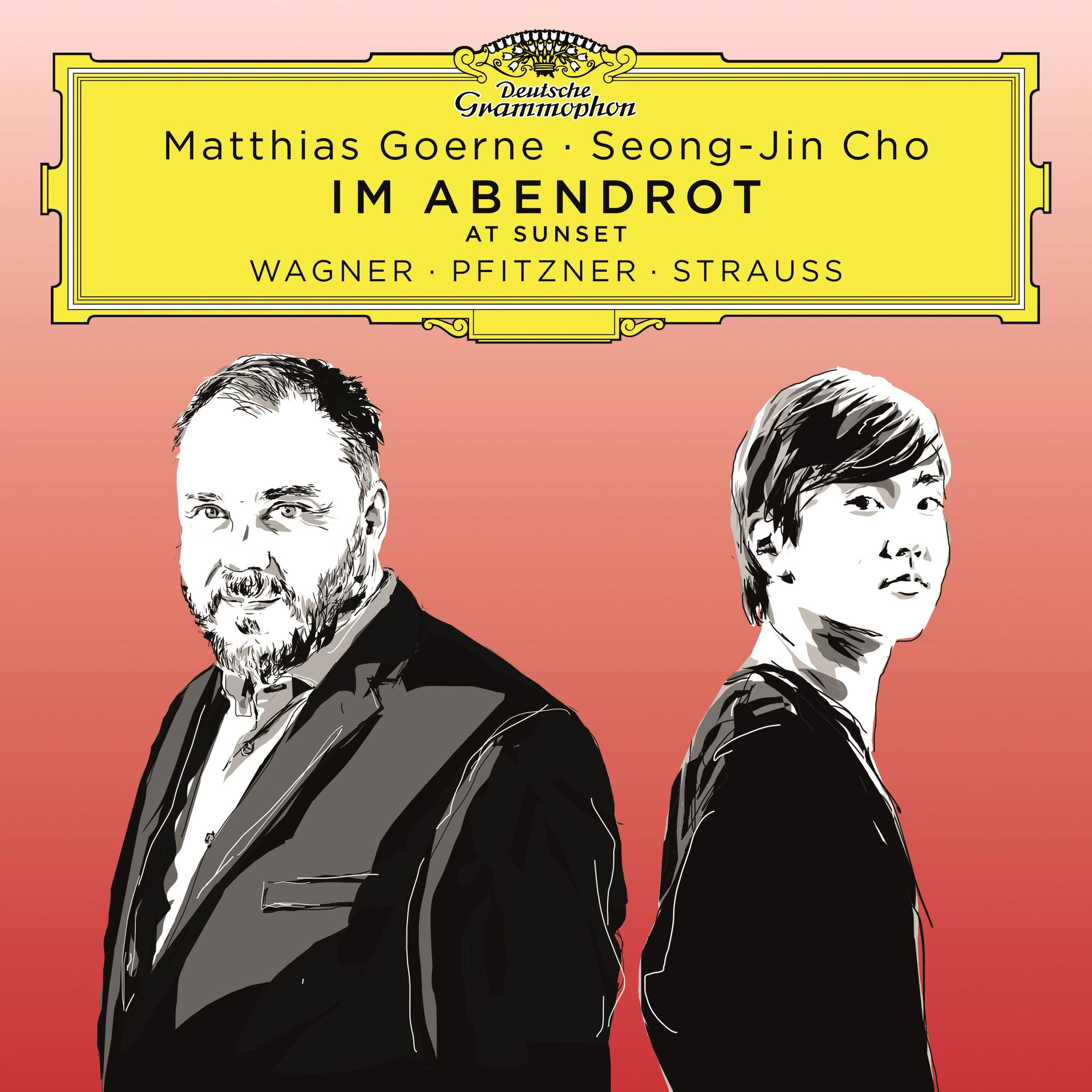Im Abendrot: Matthias Goerne and Seong-Jin Cho (at sunset)
An absolutely unmissable disc for lovers of the late-Romantic Lied

(image © Caroline De Bon)
Difficult to know what to get excited about most here: Matthias Goerne's beautiful voice, his miraculous pairing with pianist Seong-Jin Cho, the perfectly thought-through programming or perhaps, for an "explorer" in the repertoire, the arrival of a handful of songs by Hans Pfitzner (sandwiched between Wagner and Richard Strauss).

Released just a few days ago on April 16, this entire disc is a joy and an education. In terms of Classical Explorer's presentation of repertoire, too, it's perfect that we have a Wagner Wesendonck-Lieder with piano, perfectly balancing that with orchestra we recently saw from Lise Davidsen and the London Philharmonic under Sir Mark Elder over on Decca. The presentation on piano in the "Tristan study" "Im Triebhaus" seems to reveal an even deeper aspect to Wagner's harmonies now they are not cushioned in softer orchestral garb; another side of the same coin, perhaps. Here's Goerne:
.. and here's Davidsen with Elder:
Seong-Jin Cho is one of the true young stars on the Yellow label, as his releases and concerts have repeatedly shown. As a musical partner to Goerne, he is second to none. As for Goerne, his voice is one to revel in; but it comes coupled with a clearly gargantuan musical intellect.
When it comes to Hans Pfitzner, Christophe Ghristi's notes remind us that Pfitzner the conductor recorded other peoples' music, Strauss mainly his own. This offers a rather pleasant exploratory aside. In 1928-30, Pfitzner recorded five Beethoven symphonies for Polydor. Music-making of a different nature than that of today: expansive, with tempo fluctuations; generous, loving. Here's the first movement of the "Pastoral" Symphony (with the Orchestra of the Berlin State Opera);
Hans Erich Pfitzner was born in 1869 and, like Richard Strauss, died in 1949. His music is unique. He enjoyed none of the celebrity of Strauss, nor the fame of the polarising explosion that was Richard Wagner. His music is in its own way uncompromising, in the sense that it is utterly true to itself; it also exudes a beauty all of its own. Try "An die Mark," a hymn to melancholy to words by Ilse von Stach:
Goerne and Cho give us eight songs by Pfitzner; a veritable cornucopia. Interesting to compare Goerne and Dietrich Fischer-Dieskau in this repertoire. Goerne and Cho find interior beauty in "Nachts," Op. 26/2, a setting of Eichendorff:
... but Fischer-Dieskau and Gerald Moore in this live performance from Salzburg are more nightmarish. We really feel the mood of the opening lines of the Eichendorff: "Ich stehe in Waldesschatten / wie ein des Lebens Rand" (I stand at the forest's shadow / as if on the edge of life):
Goerne and Cho's programming is mriaculous. Richard Strauss' setting of Otto Julius Bierbaum, "Traum durch dir Dämmerung" (Dream in the Dusk) in its enigmatic harmonies acts as something of a transition between Pfitzner and the Strauss we all know and love - and how that familiar, glowing Strauss then "arrives" in the famous Morgen!:
The selection of Strauss songs is varied. What drama the pair find in "Ruhe, meine Seele" (Op. 27/1), what fragrant beauty in "Freundliche Vision," Op. 46/1. And, just as the album began with a song better known in its orchestral garb, so it ends. The last of the last: No. 4 from Vier letzte Lieder, "Im Abendrot" (At Sunset), from which the album gets its name.
An absolutely unmissable disc for lovers of the late-Romantic Lied.

(Twitter image © Caroline De Bon)
